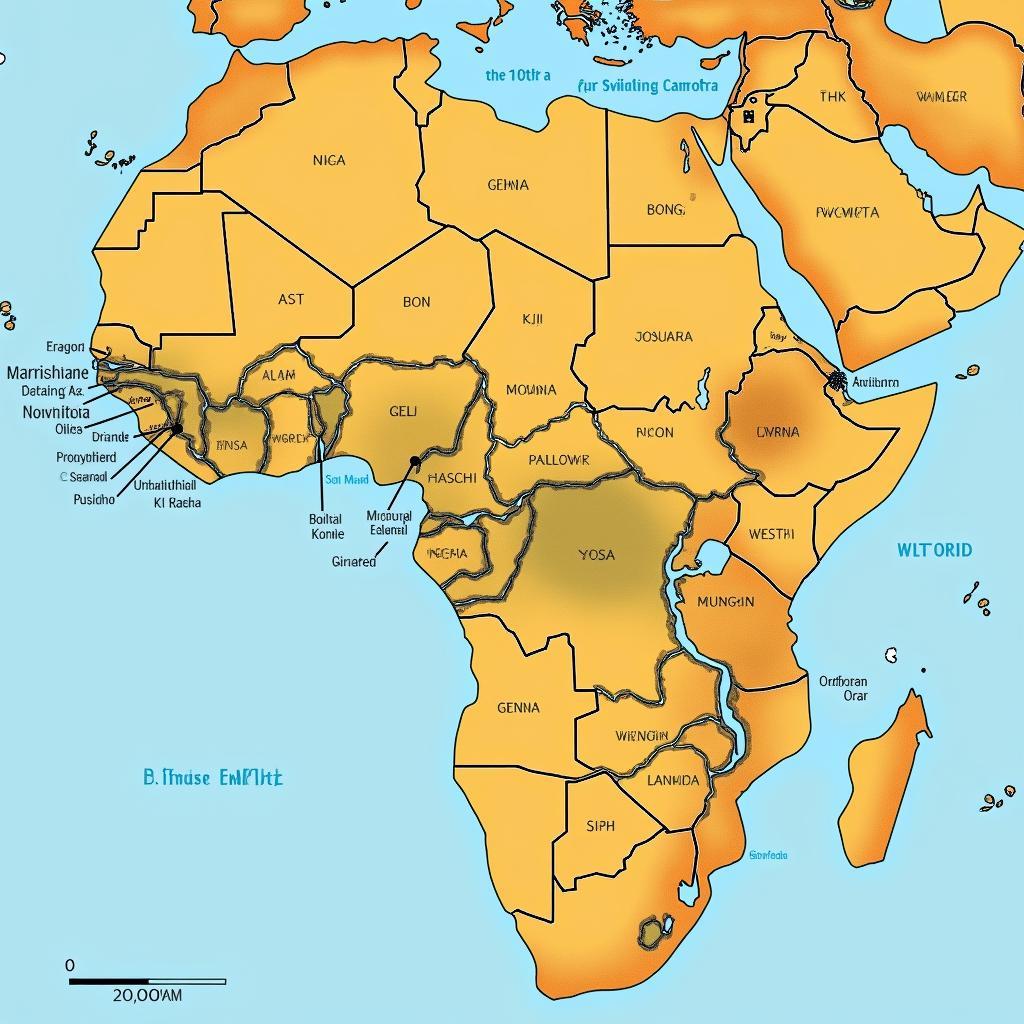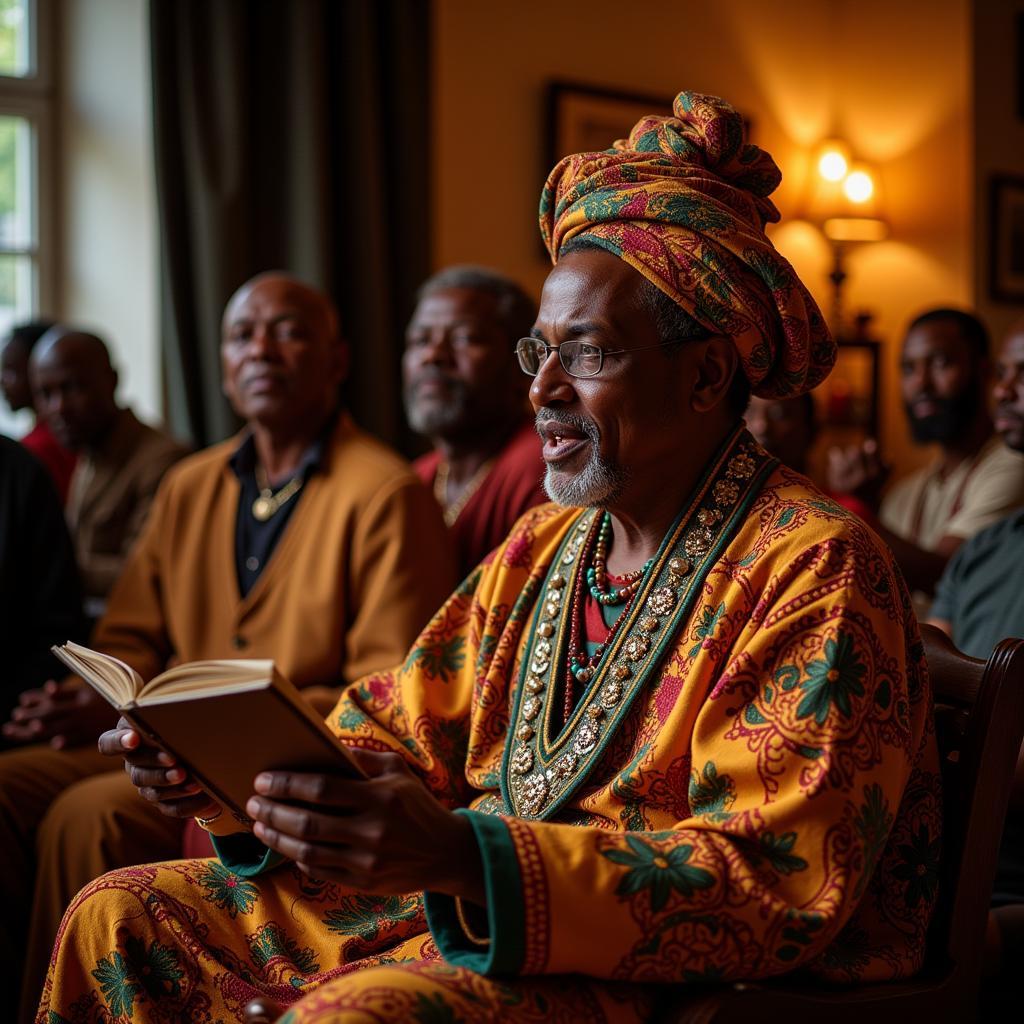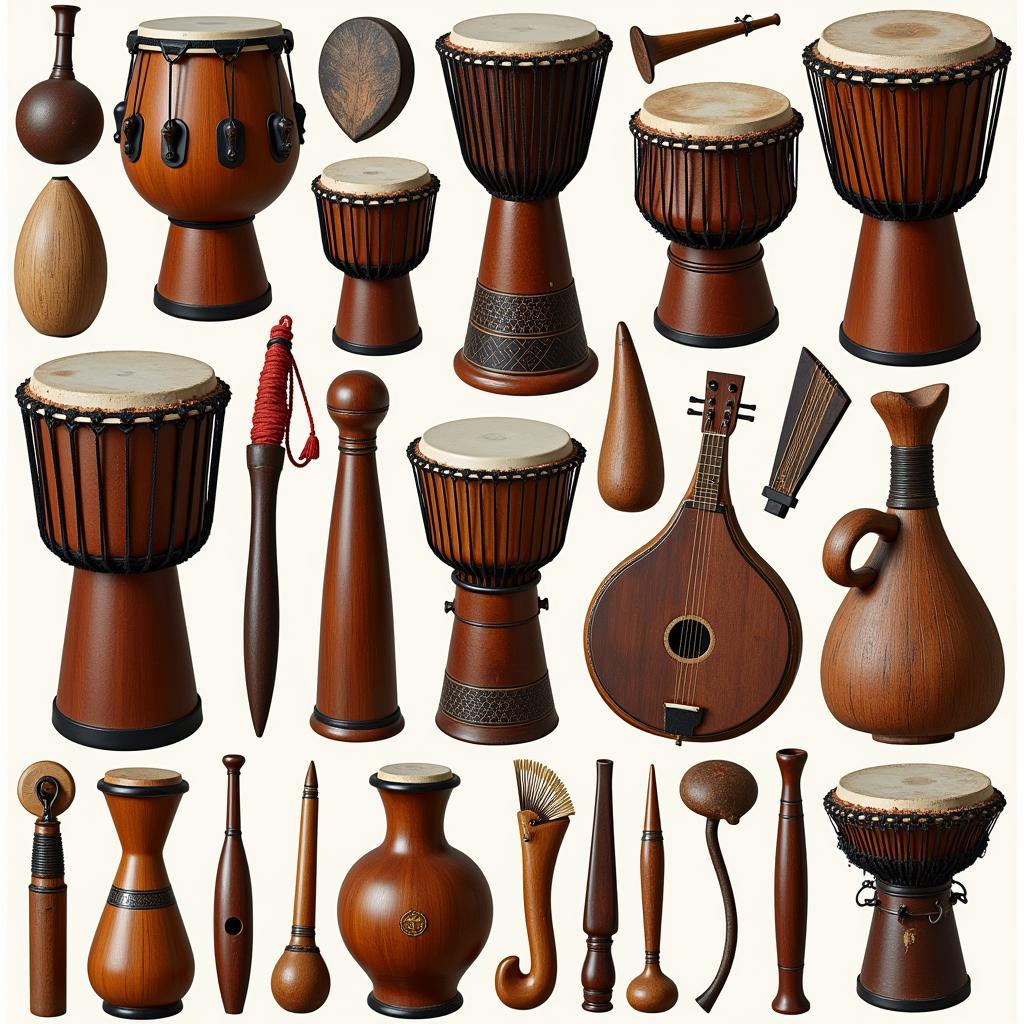African Empires: A Journey Through Time and Grandeur
Africa, a continent brimming with diverse cultures and a rich tapestry of history, is often misrepresented as a place devoid of significant civilizations. This couldn’t be further from the truth. Scattered across the continent lie the remnants of powerful African Empires that once commanded vast territories, fostered intellectual and artistic advancements, and left an indelible mark on the world stage.
Beyond the Sands of Time: Unveiling Africa’s Imperial Past
From the bustling trading centers of ancient Ghana and Mali to the majestic stone architecture of Great Zimbabwe, African empires defied the harsh environments they inhabited and flourished for centuries. These empires were not mere political entities; they were centers of learning, innovation, and cultural exchange, shaping the destiny of Africa and influencing the wider world.
The Pillars of Power: Trade, Innovation, and Cultural Exchange
Trade: The Lifeline of Empires
Many African empires rose to prominence through strategic control of lucrative trade routes. The Ghana Empire, for instance, dominated the trans-Saharan trade in gold, salt, and enslaved people, accumulating immense wealth that fueled its expansion. Similarly, the Mali Empire, under the legendary rule of Mansa Musa, controlled the flow of gold, salt, and ivory, establishing Timbuktu as a renowned center of commerce and Islamic scholarship.
 Ancient Ghana Empire Trade Routes
Ancient Ghana Empire Trade Routes
Innovation: Shaping Technology and Progress
African empires were not only adept at trade but also displayed remarkable ingenuity in various fields. The Kingdom of Kush, known for its ironworking prowess, developed advanced iron smelting techniques centuries before their use in Europe. Their expertise in metallurgy facilitated the creation of superior weapons and tools, bolstering their military might and agricultural productivity.
Cultural Exchange: A Tapestry of Influences
The exchange of ideas, beliefs, and artistic expressions played a crucial role in shaping the cultural landscape of African empires. The Aksumite Empire, for instance, adopted Christianity in the 4th century CE, becoming a pivotal center for the spread of the religion in East Africa. Similarly, the spread of Islam through trade and conquest left a lasting impact on the cultural and religious practices of empires like Mali, Songhai, and Kanem-Bornu.
The Legacy of African Empires: Echoes of Greatness
The legacy of African empires extends far beyond their territorial boundaries and chronological confines. These empires left an enduring impact on the social, cultural, and political landscape of Africa, shaping the identity and heritage of numerous ethnic groups.
Architectural Marvels: A Testament to Ingenuity
The architectural achievements of African empires stand as a testament to their sophisticated understanding of engineering and design. The Great Zimbabwe ruins, with their massive stone walls meticulously constructed without mortar, are a prime example. Similarly, the ancient city of Aksum, adorned with towering obelisks and intricate carvings, reflects the architectural prowess of the Aksumite Empire.
Oral Traditions: Keeping History Alive
In the absence of widespread written records, oral traditions played a vital role in preserving the histories and legends of African empires. Griots, the revered storytellers of West Africa, ensured the transmission of knowledge from one generation to the next through captivating narratives, songs, and proverbs. These oral histories continue to offer valuable insights into the lives, beliefs, and societal structures of these bygone empires.
 African Griot Storytelling
African Griot Storytelling
Conclusion: Reclaiming Africa’s Narratives of Power and Legacy
The history of African empires is not merely a collection of dates and names; it is a testament to the resilience, ingenuity, and cultural brilliance of the African people. By exploring the remnants of these empires, we gain a deeper understanding of Africa’s multifaceted past and its significant contributions to world history.
It is time to move beyond the Eurocentric narratives that have often overshadowed the achievements of African civilizations. As we delve into the rich tapestry of African empires, we reclaim narratives of power, innovation, and cultural exchange, celebrating the enduring legacy of these once-great empires.
FAQ
1. What were the major African empires?
Some of the major African empires include the Ghana Empire, Mali Empire, Songhai Empire, Great Zimbabwe, Aksumite Empire, Kanem-Bornu Empire, and the Kingdom of Kush, among others.
2. How did African empires impact global trade?
African empires played a pivotal role in global trade networks, controlling the flow of valuable commodities such as gold, salt, ivory, and enslaved people. Their trade connections extended to the Middle East, Asia, and even Europe, shaping economic and cultural exchange across continents.
3. What are some notable architectural achievements of African empires?
The Great Zimbabwe ruins, with their massive stone walls, and the ancient city of Aksum, adorned with towering obelisks, are just a few examples of the impressive architectural achievements of African empires.
4. How were the histories of African empires preserved?
In the absence of widespread written records, oral traditions, passed down through generations by griots (storytellers), played a crucial role in preserving the histories, legends, and cultural heritage of African empires.
5. Why is it important to learn about African empires?
Learning about African empires challenges Eurocentric narratives of history and highlights the significant contributions of African civilizations to global trade, innovation, and cultural exchange. It fosters a more inclusive and accurate understanding of world history.
Need Help?
For any inquiries or assistance, please don’t hesitate to contact us:
Phone: +255768904061
Email: kaka.mag@gmail.com
Address: Mbarali DC Mawindi, Kangaga, Tanzania.
We have a dedicated customer support team available 24/7 to assist you.


